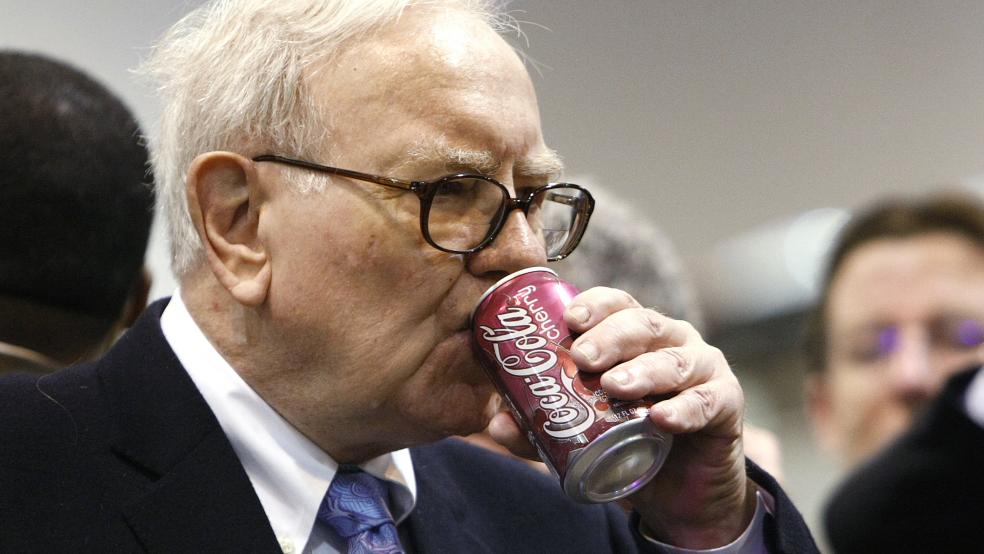I never really thought I would find myself writing these words, but here they are: Warren Buffett is in the wrong.
Not that Buffett, the fabled Oracle of Omaha, is in any way infallible. He’s made mistakes before and will make them again. But for some time now, Buffett has been in the vanguard of a small group of ultra-wealthy folks who are ultra-honest, even when it hurts goes against their vested interests. Mistakes are one thing. Wrong-headedness is something else entirely.
His 2011 New York Times op-ed pointed out that while he pays millions in taxes every year, his effective tax rate is likely less than half of what most of us will pay, thanks to various forms of preferential tax treatment. “These and other blessings are showered upon us by legislators in Washington who feel compelled to protect us, much as if we were spotted owls or some other endangered species,” he said, wryly.
Related: The Man Pushing CEO Pay to the Stratosphere
I find myself struggling to reconcile that Buffett — the one who has been vocal arguing against the further widening of the wealth gap, finding a way to boost wages without stifling economic growth and opposing overly generous executive pay plans — with the one who spent part of his weekend fielding criticism of his decision to abstain from voting Berkshire Hathaway’s 400 million Coca-Cola shares, 9 percent of the total, in opposition to the beverage giant’s compensation policy.
The $5 billion/5-year stock compensation plan passed with more than 80 percent of the vote, but fewer than half of the outstanding shares voting.
Buffett didn’t abstain because he thinks Coke’s plan, now scheduled to go into effect next year, is OK. He doesn’t. In fact, he doesn’t much like it at all and has referred to it as “excessive.”
Nevertheless, Buffett decided that “going to war” with Coke over the issue just wouldn’t be the right thing to do. Buffett voiced his concerns to Coke’s CEO more than once, but, he said, he likes Coke’s management. That’s one of the reasons he owns the stock. “I could never vote against Coca Cola.”
What?
That’s a big problem. If you’re an investor, managing not only your own money but that of other people, you should always be prepared to vote against a management team when you think they’re making a mistake — and Buffett has already made it clear that he thinks his guys at Coke are doing just that with this compensation plan.
What does Buffett’s decision to sit on the fence say to those small shareholders who go to the trouble of filling out proxy forms and sending them back to cast their ballots, perhaps having been encouraged in past years by Buffett to believe that their opinions and their votes count? If I were one of those small investors, right now I’d be feeling more than a little dissed.
Buffett has publicly declared that he is trusting his behind-the-scenes negotiating prowess to convince the Coke execs to reshape their plan into something that’s more acceptable to both himself and the company’s other critics. That’s fine, and good for him if he manages to pull it off.
But when you’re Warren Buffett, such backstage maneuvering really isn’t enough because you’re not just any shareholder. You owe it to the hundreds of thousands of people admire and respect you as an executive and an investor to act in a way that is consistent with your principles and your past behavior.
Buffett made clear what he thinks of this compensation proposal, and once he did, he had one ethical course of action: to vote against it.
Related: The High-Stakes Fight Over How to Measure CEO Pay
I’m not ready to replace Buffett with activist investor Carl Icahn on my personal list of “most admired figures in finance.” Nor am I convinced that Buffett’s abstention from this vote rises to the kind of cronyism that Icahn tries to equate it with in his critique published last weekend in Barron’s. I was, however, glad to see that Icahn drew a direct connection between Buffett’s inexplicable abdication of responsibility in this instance and the more general (and far more common and far less public) lack of engagement on the part of those charged with overseeing corporate management: boards of directors and influential investors like Buffett.
Perhaps this will all turn out happily, with Coke making the required changes to the compensation plan. But that won’t fix the damage that Buffett himself has done.
I’m sure Buffett truly believes this was the right course of action for Berkshire Hathaway shareholders, for Coca-Cola shareholders and, yes, even for corporate governance. I simply can’t agree with him, and the longer I have spent pondering this question, the more troubled I have become.
When someone has earned a reputation for taking a stand for shareholder rights – to the point of holding marathon weekend-long annual meetings himself, as Buffett does – doing anything that might denigrate the value of a public shareholder vote, however small, is a dismaying signal. And in a business desperately in need of role models who consistently practice what they preach, it’s a crushing disappointment.
Top Reads from The Fiscal Times:






